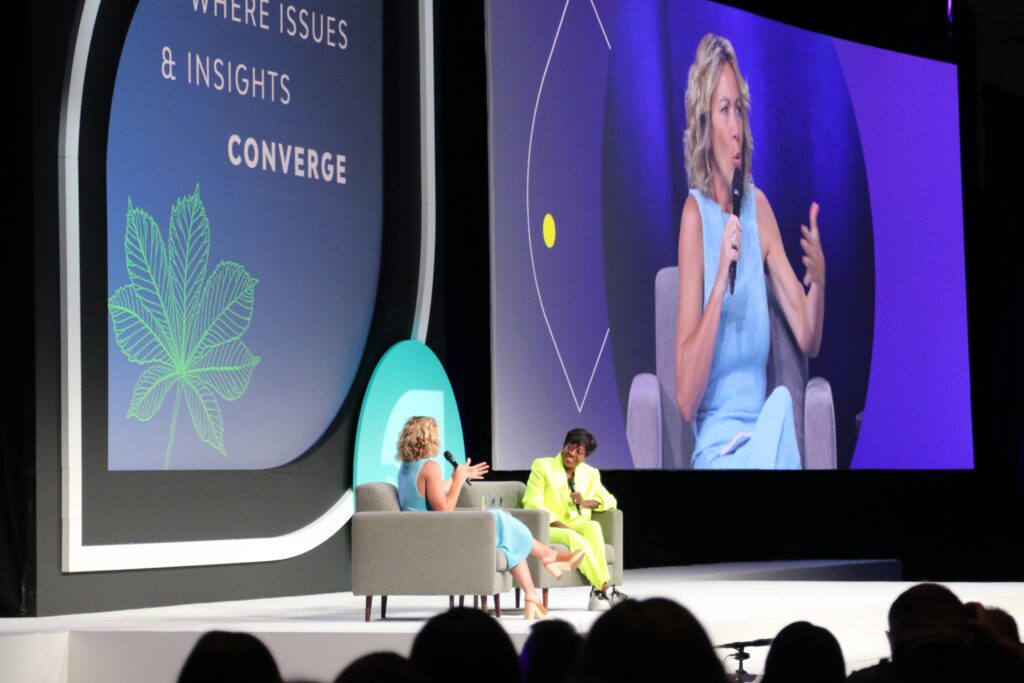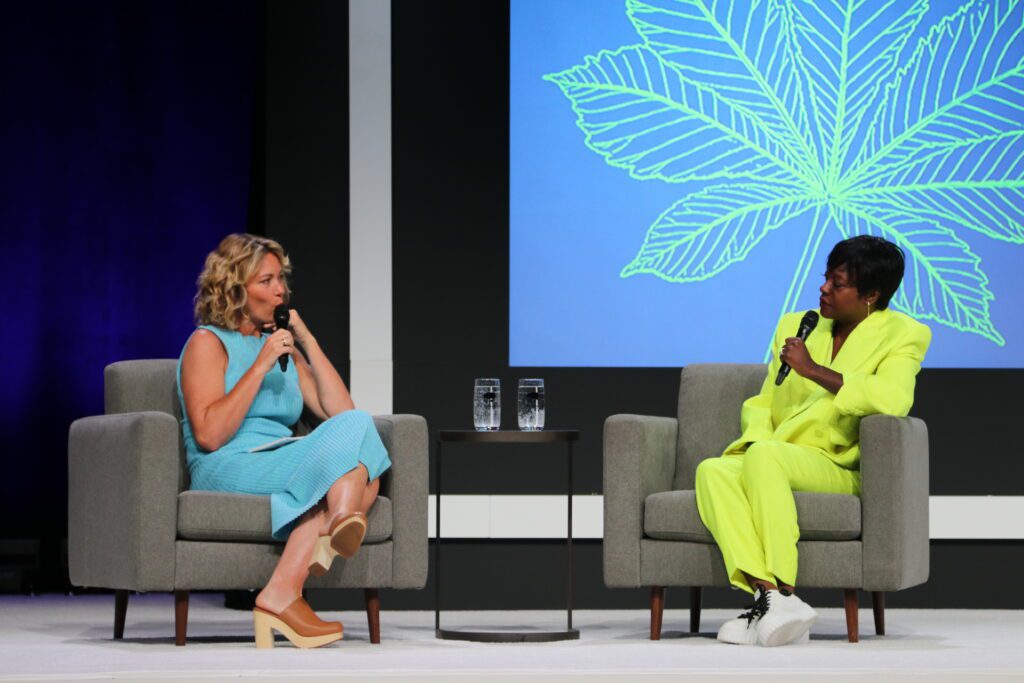Viola Davis is a world-renowned actress, writer, and producer, holding the coveted EGOT status in Hollywood (winning an Emmy, Grammy, Oscar, and two Tony Awards). But, as Davis explained on the main stage at the 2024 BIO International Convention, those awards don’t mean much in the grand scheme of life.
“What can I fit on that headstone when I die?” Davis asked. “It’s not EGOT.”
Instead, Davis values the deeper connections of life: her daughter, the advocacy work she does around food insecurity, her art, and her mother—who is currently living out the end of her life in memory care.
“I can’t bring my EGOT to the room when my heart is crushed looking at my mom and knowing she has no memory of me,” Davis explained tearfully. “She’s the love of my life. So every time I see her, I have to communicate that she’s loved through Alzheimer’s. I don’t know how to keep my heart from breaking.”
Davis’s words illuminate an undeniable fact of life: all the accolades, success, and applause in the world can never keep you from experiencing the pain that time, disease, and loss guarantee. This fact of life is arguably a main driver for the biotech industry.
As Dr. Ted Love, the current Chair of the Biotechnology Innovation Organization (BIO), said earlier in the program, “We joined this industry to save lives, improve our society, and give each of us more time—time to love one another, care for one another, and enjoy each other’s memory.”
Biotech can make impossible dreams possible
Davis is not the only actor to learn that life is more than the awards you might win. Aaron Lazar, acclaimed actor, singer, and now advocate, had the trajectory of his life fundamentally changed when he was diagnosed with ALS two years ago.
“Today, I sit before you with ALS, a terminal disease that kills your nerves, takes your freedom, all before taking your life,” Lazar said. “They say there’s no cure. I say it is a disease that I firmly believe I’m going to beat.”
But as Lazar explained, ALS taught him to live his life, something he was surprised to find he wasn’t doing prior to his diagnosis.
“My whole life, I thought health was just physical,” he said. “Physically, I may have looked really healthy, but under the hood, I was a bit of a mess.”
Instead of living in every moment of his life, Lazar said he was only living for the highs and lows. But through ALS, he began a meditation practice and learned to live life directly. He believes his new outlook is the key to his future success.
Lazar asked his doctor, “Has anyone ever beaten ALS?” When his doctor informed him that 60 people have successfully had reversals of non-genetic ALS, Lazar wanted to know how.
“He said, Science doesn’t know,” Lazar began, “But the majority of ALS reversals have this in common: a positive mindset and mindfulness practice.”
“Twenty-four years ago, I dreamed of becoming an actor, and nothing seemed impossible because I believed in myself no matter the odds,” said Lazar. “And then 24 months ago, facing the scariest adversity in this diagnosis that I’ve ever faced, I found courage somehow. And with practice, courage became hope, and hope became faith–it was faith in myself. I started to have faith in life again. It’s crazy, in this nightmare of ALS, I started to dream again. My dream to beat this disease has become so much more. It’s become a dream to heal all of us.”
‘I want to leave something in people’

“I think that healed people become healers,” Davis echoed in her interview. “I say that because I’m the person who needed the healing.”
Even though Davis and Lazar work in an industry far displaced from the world of biotech, there are undeniable parallels when it comes to what drives both them and biotech innovators to succeed.
“I want to leave something in people,” Davis said. “I don’t want to just leave something for people.”
“I see life as a relay race,” Davis added, “where you have a bunch of really great runners and their job is to pass the baton to the next great runner until you get to the end. And life is that dash of time; you have to pass that baton.”
And just like in life, the forward progress of the biotech industry is built on partnership, learning, growing, and passing on the baton—all with the goal of advancing medicine, food security, and human prosperity. And the progress of the biotech industry builds upon itself for the future success of the world.




